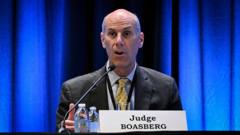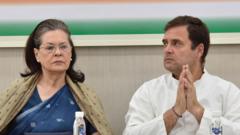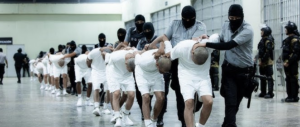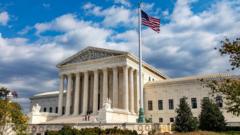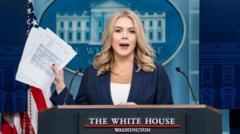Mohammed Zubair, co-founder of AltNews, finds himself in legal turmoil again as the Allahabad High Court hears a petition for his arrest amidst allegations of endangering India's sovereignty. Zubair argues that he faces repercussions for his role in highlighting hate speech, underscoring broader issues of press freedom and targeted actions against dissenting voices in India.
Indian Fact-Checker Mohammed Zubair Back in Court Amid Controversy Over Hate Speech

Indian Fact-Checker Mohammed Zubair Back in Court Amid Controversy Over Hate Speech
The prominent fact-checker and journalist faces new charges in India after his criticism of hate speech pertaining to a Hindu priest, raising concerns over press freedom.
In a significant and worrisome turn of events for press freedom in India, Mohammed Zubair—a prominent co-founder of the fact-checking organization AltNews—has returned to court just over two years after being granted bail by the Supreme Court. Zubair is being implicated in a new case filed by the police in Uttar Pradesh, accused of “endangering the sovereignty, unity, and integrity of India.” If convicted, he faces the potential of a minimum seven-year prison term or life imprisonment.
Zubair has vehemently denied the charges against him, suggesting they are the result of his diligent work in fact-checking and combating hate speech. “I feel I’m being targeted because of the work I do,” he stated, shedding light on the broader implications for journalists in similar situations.
The recent court proceedings took an unexpected turn when judges recused themselves from hearing the case after just 20 minutes. The accusations stem from a post Zubair made on X (formerly Twitter), which criticized incendiary remarks made by Yati Narsinghanand, a controversial Hindu priest. Narsinghanand, who has been known for making inflammatory and violent statements against Muslims, was recorded in a video that Zubair shared. This incident incited protests outside Narsinghanand's temple, resulting in arrests of those involved.
Following the post, Narsinghanand's supporters gathered to demand action against Zubair, leading to the new charges being filed against him. Initially facing less severe allegations, the police recently upgraded the charges to invoke Section 152 of the Bharatiya Nyaya Sanhita, making his arrest more feasible.
Zubair's legal team is pursuing interim bail while asserting that he was not the only one to disseminate the priest's comments—other journalists and media outlets had previously reported on the same. The dilemma highlights the plight of journalists who report on sensitive topics that may provoke governmental scrutiny or backlash.
In a statement supporting Zubair, human rights and media organizations condemned the escalating actions by authorities, interpreting them as attempts to suppress dissent. Amnesty International called the situation an instance of using the law to perpetuate efforts against human rights defenders and journalists who exercise their right to free speech.
Critics argue that the increasing charges against Zubair are symptomatic of a larger trend in India, where dissenting voices face harassment and legal challenges. Despite international and domestic pressure, including comments from UN Secretary General António Guterres regarding press freedom, the Indian government continues to face scrutiny over its handling of journalists.
The situation around Zubair serves as a poignant reflection of the broader struggles faced by journalists in India, as the country now ranks 159 out of 180 on the Global Press Freedom index, pointing to a concerning trend of media repression.



